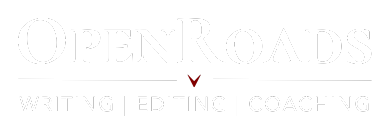“Writing shit about new snow for the rich is not art.” – Issa
Writing a book proposal stirs deep tension for many writers.
On one hand, there’s the desire to write for creativity’s sake, to focus on the art itself. On the other, there’s the reality that a book proposal must prove marketability—it has to show agents and publishers that your book is worth their financial risk.
For some, this feels like an act of selling out, of compromising creative integrity to cater to the market.
Yet, a book proposal isn’t about betraying your art. It’s about building a bridge between your creativity and your audience. To agents and publishers, a book proposal is a business plan, one that demonstrates your book’s viability.
Agents who work on commission need to know your book will sell so they can confidently invest their time. Publishers, who shoulder the financial risk, need to see that your book will exceed the typical benchmark of selling fewer than 500 copies.
To inspire this confidence, your book proposal must show not only that there’s a clear audience for your book, but that you have a plan to reach them.
TL; DR: Writing a marketable book doesn’t diminish its artistry—it amplifies its purpose. A book proposal is a business pitch. And, it’s your opportunity to demonstrate that your book is a meaningful and marketable act of service.
The Misunderstood Artist and the Protective Shield
For many writers, resisting the idea of creating a “marketable” book proposal isn’t just about rejecting commercialism—it’s about self-protection. The trope of the “misunderstood artist” allows writers to blame others for rejection. If no one buys the book, it’s not because the work didn’t resonate—it’s because the audience or publishers failed to “get it.” This narrative can feel comforting, but it’s also limiting.
The truth? Avoiding the work of proving marketability and crafting a marketing plan doesn’t spare you from being misunderstood. Instead, it ensures that your work doesn’t connect with readers at all.
Creating a strong, marketable book proposal requires vulnerability—it demands that you fully commit to your work and take the risk of putting yourself and your ideas into the world. When you embrace this process, you’re not compromising your art. You’re giving it the best chance to resonate deeply with the readers it’s meant to serve.
The Shift: Your Book Proposal as a Business Plan
At its core, a book proposal is a business plan. It’s your pitch to agents and publishers, proving that your book is a smart investment. Agents who only get paid when they sell your book need to see why it’s an easy bet. Publishers who invest in printing, distribution, and marketing want certainty that your book will not only sell, but sell well.
Your proposal should leave no doubt that your book will exceed expectations by showing:
- There’s a clear market for your book.
- Your book fills a unique gap in that market.
- You have a specific, actionable plan to reach readers and drive sales.
This isn’t about pandering to trends or losing your artistic voice.
It’s about positioning your book as both a meaningful piece of art and a viable product.
When you present your book proposal as a business plan, you’re showing agents and publishers that you understand the industry and are ready to partner in your book’s success.
Marketability as Connection: The Book Proposal’s Role
The effort to make your book proposal marketable is, at its heart, about connection. It’s not about diluting your voice—it’s about strengthening your ability to resonate. A strong book proposal asks:
- Who am I writing for?
- What challenges, needs, or desires does my book address for readers?
- How does my book uniquely serve or inspire them?
Your book proposal is the tool that transforms your creative vision into a clear and compelling case for your audience. It’s how you show agents and publishers that your work has a real, defined market and that it will resonate with readers in a meaningful and impactful way.
By presenting your proposal with focus and clarity, you demonstrate that your book is not only worth publishing but capable of thriving in the hands of its ideal audience.
Crafting a Proposal That’s an Easy Bet
Your book proposal needs to do more than inspire—it needs to show that your book is worth the financial risk. Here’s how to build a proposal that makes it easy for agents and publishers to say yes:
Prove There’s a Market
Your proposal should clearly define your audience and show there’s demand for your book:
- Identify Your Target Reader: Be specific. For example, instead of “parents,” say, “First-time moms in their 30s looking for practical but humorous advice on parenting.”
- Demonstrate Market Interest: Include data about similar successful books in your genre. Highlight how your manuscript builds on their success and fills a gap they’ve left.
- Show Why Readers Need Your Book: Explain what makes your book stand out. For example: “This self-help book combines neuroscience and storytelling, appealing to readers who want actionable insights delivered in an engaging narrative.”
Outline an Actionable Marketing Plan
Show that you’re not leaving promotion entirely in their hands—you’re ready to partner in the success of your book. Include:
- Your Platform: Detail your existing audience, such as social media followers, email subscribers, podcast listeners, organization membership, and places where you show up as an authority and writer.
- Engagement Plans: Explain how you’ll promote your book through speaking engagements, blog posts, guest articles, or interviews.
- Launch Strategy: Share specific launch plans. For example: “I will collaborate with 5 influencers in my niche to host a virtual book launch event, supplemented by targeted ads.”
Book Proposals, Art, and Service
“Writing shit about new snow for the rich is not art.”
Issa’s haiku reminds us that creating solely to please others and make money, with no authenticity, is indeed selling out. But writing a book proposal that positions your book as an act of service—whether it’s to entertain, inspire, or solve a problem—is never selling out.
Of course, a book proposal is about selling your book. But more importantly, it’s about showing the world why your work matters.
It’s the bridge that connects your art to the readers who need it most. And when done well, it’s the key to transforming your book from an idea into an unforgettable reality.



